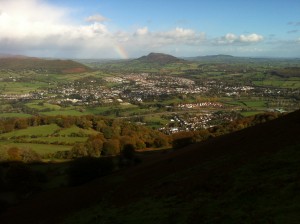James Joyce’s Ulysses is often referred to as the greatest novel of all time. Published in 1922, it was a revolution in literary form. From then on a novel could no longer just represent reality, whether naturalist or realist, fiction was on the run. Character, plot, setting, these were no longer enough. The novel had to examine itself, the history of how it came to be. So Ulysses, although representing one day in the life of Dublin, a young man’s search for meaning, an older man’s search for love, it is The Odyssey, all history, all humanity’s search for sense. Joyce’s next work, and his last, Finnegans Wake, took him 14 years to complete. If Ulysses is difficult, Finnegans Wake is impossible. If Ulysses is one day in the life of Dublin, Finnegans Wake is one night. There are characters – Earwicker, the dad, Anna Livia, mum, Shaun, Shem and Issy, the children. But the book is a dream, and it is written in dream language. There is a plot, settings, themes, but these are fluid, and everything is in flux. Earwicker dreams and is plagued by guilt. He has been accused of something. He is a hill, his wife is a river, they are the landscape of Dublin. Earwicker is Howth Head, his wife the River Liffey. At its densest, when the dreamers are in their deepest sleep, almost every word is some sort of amalgam, sentences seem to abide by syntactical rules, but then they spin off into chaos. But read it aloud and patterns, rhythms, sometimes songs emerge. It is like music. Themes emerge, disappear and reemerge like a log floating down a river. This is one of my favourite passages (and I warn you, one of the easiest).
‘Well, almost any photoist worth his chemicots will tip anyone
asking him the teaser that if a negative of a horse happens to melt
enough while drying, well, what you do get is, well, a positively
grotesquely distorted macromass of all sorts of horsehappy values
and masses of meltwhile horse. Well, this freely is what
must have occurred to our missive…’
A negative of a horse, if it melts during processing will produce a horse that is distorted, a monster, but a happy one. This is, I am sure, Joyce referring to his book, his missive. It is a happy mess. And, yes, it is very funny.
There are threads of themes, like streams, that run through the book: there are courtroom scenes, inquisitions, a letter offering evidence of guilt and innocence, meanwhile a hen pecks at litter. HC Earwicker and Anna Livia Plurabelle mutate and reappear in hundreds of forms, as do their children, Shem the Penman, Shaun the Post and Issy, Chapelizod, a village within Dublin, as Isolde, and then there is Tristan and the four evangelists, Matthew, Mark, Luke and John, who often mutate into prosecutors, inquisitors.
The book is long and dense, and there is rarely any breathing space. The Wake does with fiction what Picasso did with figurative art. But whereas Picasso’s vision has been absorbed into contemporary painting, the book remains a curiosity, largely unread. And it has few successors. Anthony Burgess (who wrote a shorter version of Finnegans Wake) pays homage to Joyce in his use of language in A Clockwork Orange. Russell Hoban’s wonderful Riddley Walker probably owes a great deal to Joyce. But these novels are far less impenetrable and a much easier read that Finnegans Wake. Joyce’s last book is about everything: gods, heroes, humanity, world history, Irish history. Published in 1939, the year of the outbreak of World War Two, it almost marks the end of time, of recorded history. The book is a tip, a letter, litter, ‘scribbledehobble’. The hen picks at the litter, finds a letter, or letters, and somehow, humanity sees in this chaos its guilt. HC Earwicker’s nightmare: he is all of us, Here Comes Everybody.
